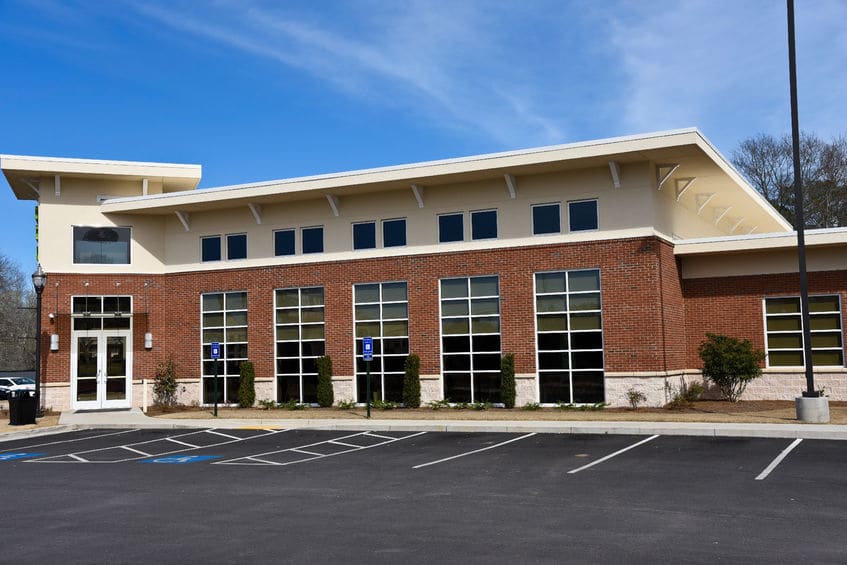
What Insurance Do I Need As A Contractor
Most insurance products sold are specialized and cover specific exposures, products, property, or people. The contracting industry is also specialized and has specific insurance needs. If you are a contractor or considering becoming a contractor, knowing the insurance products that are needed is (vital). Many employers will not hire you for the job, even if your company does the best work around, simply because you don’t have the appropriate insurance policies in place.
As always, Harris Insurance is here to help you break down the coverage you need and get you back out to landing those bids in no time. You can trust our decades of experience and expertise to help you determine what coverage you need, and what you don’t.
What Is Contractor Insurance?
Contractor insurance is generally a package of different insurance policies purchased by contractors to protect their business from financial losses in case someone were to file a claim against you or your company.
Contractor insurance protects your construction business in the case of lawsuits, on-the-job injuries, damage to your equipment, and more. The law or the company that hires you may require that you carry this coverage.
Types of Insurance and Policies for Contractor Insurance
Contractor insurance is actually several different types of insurance and policies, but contractors can purchase them all at once from the same insurance company. A wide variety of insurance plans and policies are offered so as to cover the necessities of each business. Your coverage may include, but not be limited to, the following:
Commercial General Liability
A very common type of insurance for contractors. This policy will provide coverage for Bodily Injury or Property as a result of damages caused on a construction site.
Workers’ Compensation
This is a State required coverage that is required by law if you have any employees, including subcontractors or 1099 employees, unless they have their own coverage. This coverage provides medical and short term benefits for employees that are injured in the course and scope of employment. This serves to cover you and/or your employees for any work related injuries, gross injuries not covered by commercial general liability insurance.
Commercial Auto Insurance
Commercial automobile insurance is very much like personal auto insurance. Typically, however, a commercial auto policy has a $1,000,000 limit of insurance. This insurance covers the automobile(s) used by yourself and your employees during the course of business.
Commercial Property
This coverage provides coverage for your real property. This can include you building insurance or your Business personal property within your location.
Inland Marine Insurance
These policies cover products, materials, and equipment when transported over land (usually by truck) or stored temporarily at a job site or warehouse. Inland marine covers: physical damage, theft, fire, vandalism, or total loss.
Commercial Excess and Umbrella Coverage
These kinds of policies offer a higher dollar limit to protect your business in case of a claim with costs reaching over the amount of your existing commercial auto or General Liability policies.
Employee Dishonesty
This insurance policy is a crucial component of a commercial crime insurance policy. This may protect against financial forgeries, cybercrimes, loss of business property, embezzlement, and unauthorized money transfers.
Employment Practices Liability Insurance
This covers defense costs and damages related to allegations of wrongful termination, discrimination, workplace harassment, and retaliation.
Cyber Liability
This is an insurance policy that provides businesses with a combination of coverage options to help protect the company from data breaches and other cyber security issues.
Directors and Officers’ Liability
This liability policy is designed to protect the people who serve as directors or officers of a company from personal losses, if they are sued by the organization’s employees, vendors, customers, or other parties.
Errors & Omissions Insurance
Also known as professional liability insurance, this policy helps protect you from lawsuits claiming you made a mistake in your professional services. This insurance can help cover your court costs or settlements, which can be very costly for your business to pay on its own.
Professional Liability Insurance
This is another term for E & O, or Errors & Omissions Insurance.
These are some of the most common insurance policies sought after by independent contractors. Based on the needs of your individual business, you may choose to forego some of these and look into others. Harris Insurance Services has decades of experience in determining contractors’ insurance, and is here to guide you every step of the way.
How Much Does General Liability Insurance Cost?
General liability insurance, also known as commercial insurance, covers your company from claims made by third parties against physical injury or property damage. It also covers legal expenses incurred throughout a litigation process.
General commercial liability insurance and workers’ compensation vary widely. Compared to drawn-out litigation costs, however, most contractors find rates to be quite reasonable.
How Can an Independent Contractor Be Held Liable?
While an employer can be held liable for an employee’s conduct, a contractor cannot generally be held liable because they are not subject to the employer’s supervision, direction, or control. The fact that contractors are required to carry insurance coverage -and if not by the state or area, then frequently by the employer- demonstrates this principle in action, and there are only a few ways when an employer is held liable for the contractor’s actions:
- The employer was negligent in selecting or retaining an independent contractor,
- The tasks assigned to the contractor are non-delegable, and
- The independent contractor’s work is ultra-hazardous or inherently dangerous.
Otherwise, the insurance policies carried by the independent contractor should cover them in a wide variety of circumstances. Working with a trusted insurance broker can help to ensure an independent contractor gets the coverage their business needs.
Common Insurance Coverages for Contractors
Contractor insurance packages are evaluated on a case-by-case basis, and each contractor’s needs may vary from the next based on what they are going to need their insurance for, in terms of coverage. Therefore, it’s important to determine the criteria by these measures:
- Location
- Type and number of vehicles operated
- Claims history
- General coverage needs
- Number of employees
Your insurance broker will help utilize these criteria and any others as necessary to determine the insurance you must carry as an independent contractor.
How Much Does Contractor Insurance Cost?
The cost of contractor insurance varies widely based on the kind of work being done, the vehicles used, whether or not you need to carry worker’s compensation insurance, the type of industries or industry you work in, and many other relevant factors. The figures given above are mere examples, and in order to get the most effective coverage for the least amount of money, working with an insurance broker is the best strategy.
Protecting Your Business with Contractor Insurance
Taking on insurance policies as an independent contractor may seem like an expensive and unnecessary move. However, many bids require contractors to carry their own insurance, and the protections against acts of damage, theft, vandalism, cybertheft, automobile damage, and more ensure that this insurance pays for itself rapidly.
When you are ready to discuss contractor insurance policies and find the right coverage for your company, contact Harris Insurance Services, Inc. to get started.




